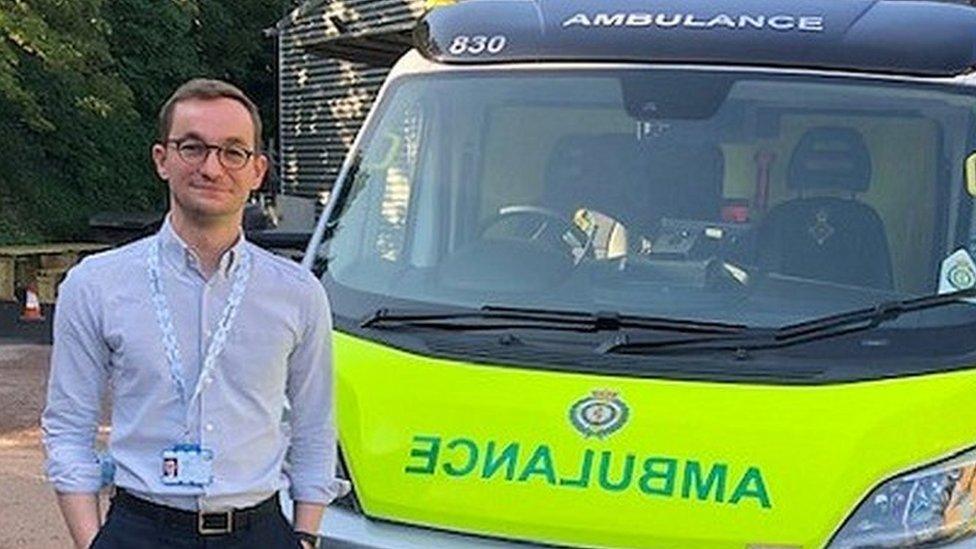Fakenham: New ambulance car to help reduce waiting times
- Published
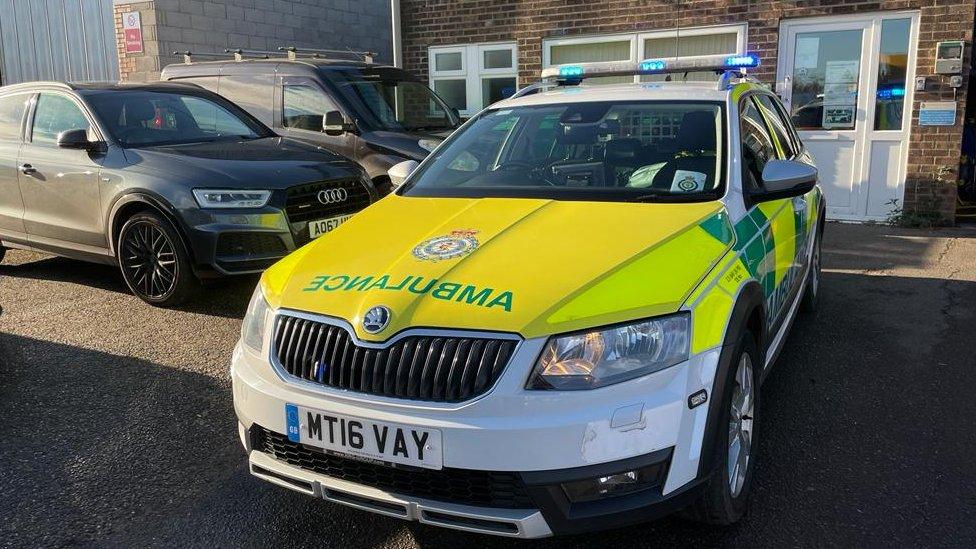
The rapid response vehicles are part of a trial to reduce response times
An ambulance service has introduced a rapid response vehicle in a trial aimed at reducing waiting times.
The East of England Ambulance Service said the smaller vehicle would allow teams to more easily navigate the narrow roads around Fakenham, Norfolk.
The area "historically" has longer response times than other places, the service said.
Chief executive Tom Abell said he hoped the trial would be a "real success".
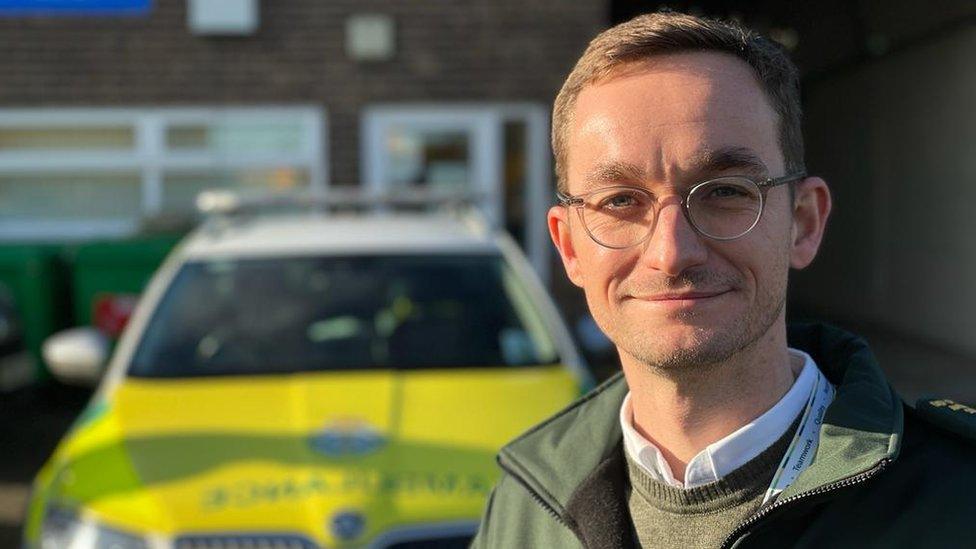
Chief executive Tom Abell said he was "passionate" about improving care for the local community
Rapid Response Vehicles (RRVs) are "more likely" to stay in the area where they are based compared to ambulances, which would be moved around the county depending on patient need, Mr Abell said.
"With the RRVs, we can get a really fast response with qualified staff to take care of immediate life-saving needs," he said.
Mr Abell said Fakenham and the surrounding area had the "longest response times", which could be up to 15 minutes longer
Paramedic Jake Kerry said traffic in the area could be "pretty horrendous so having a small, more nimble vehicle" enables them to get to places quicker..
The trial is due to last until mid-February and if response times are reduced, the service plans to roll out more RRVs across the region.
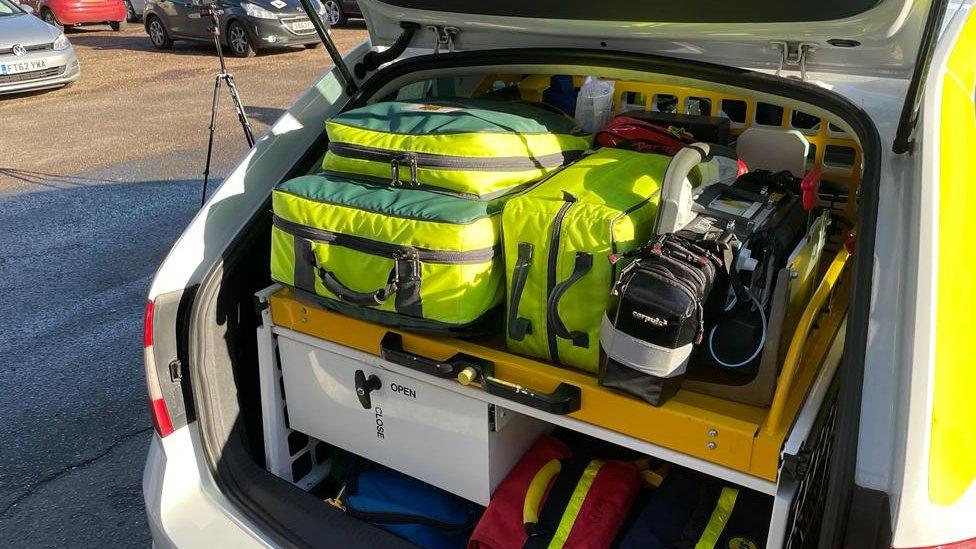
The RRVs are stocked with high-tech equipment

Find BBC News: East of England on Facebook, external, Instagram, external and Twitter, external. If you have a story suggestion email eastofenglandnews@bbc.co.uk, external
Related topics
- Published18 November 2021
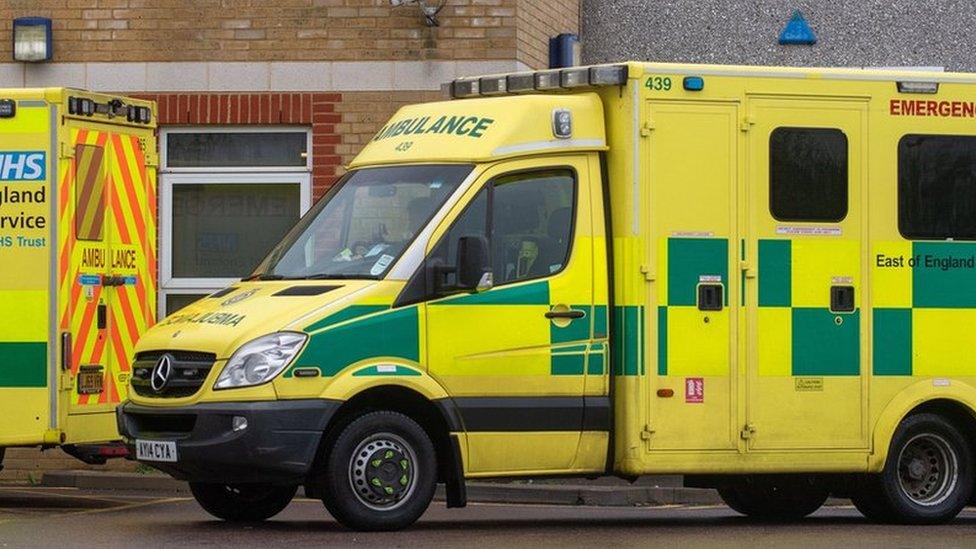
- Published13 October 2021
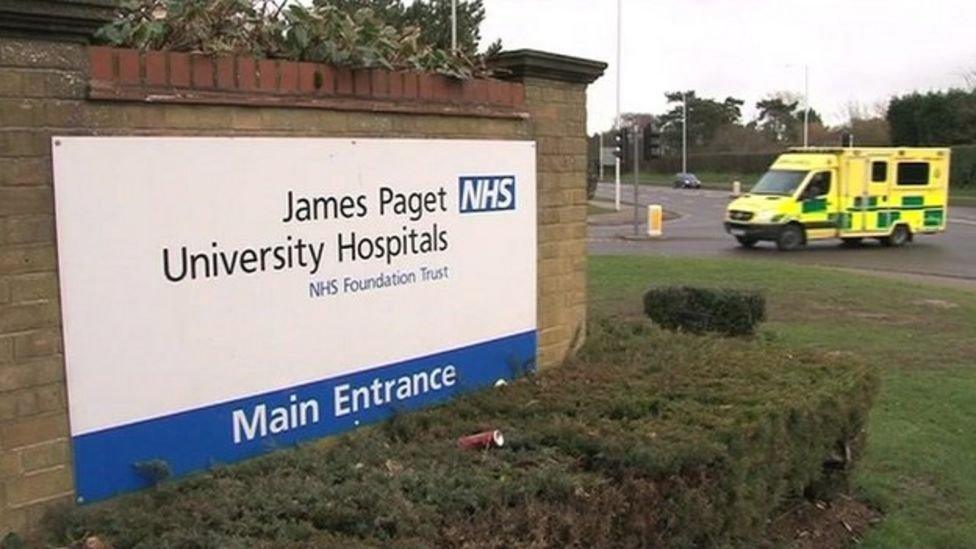
- Published20 August 2021
